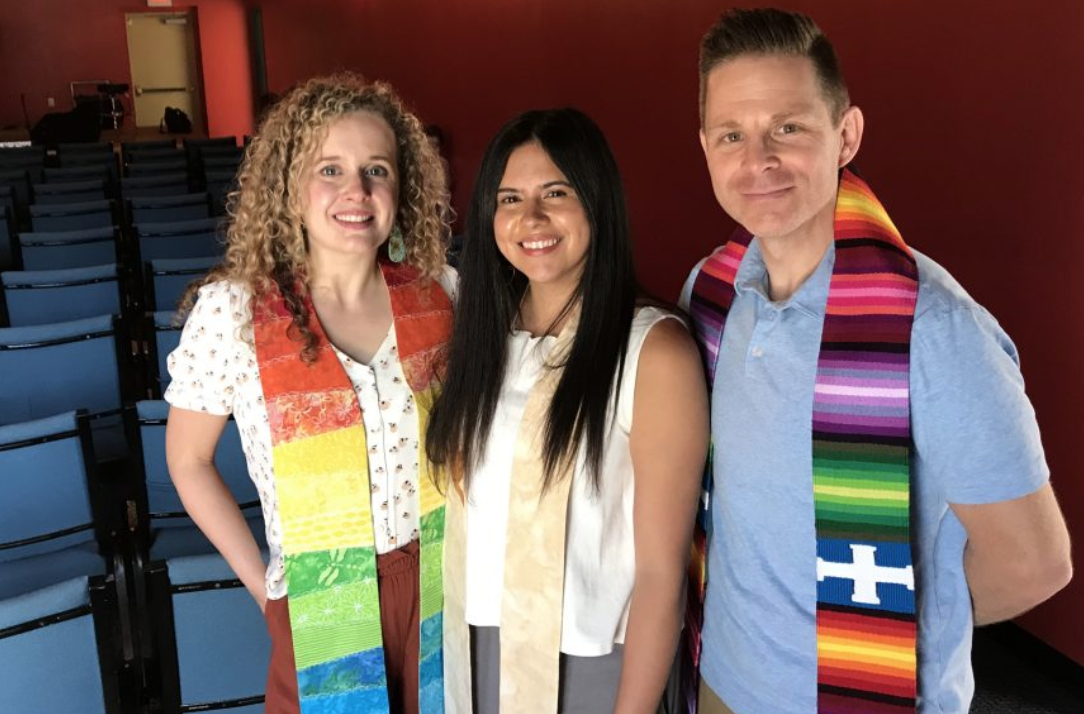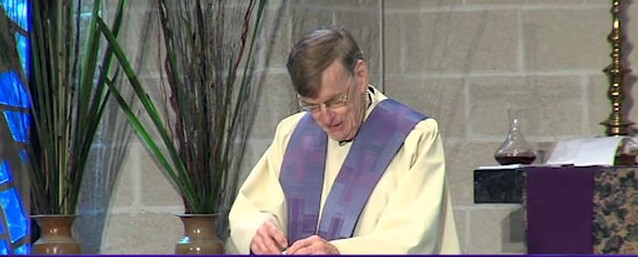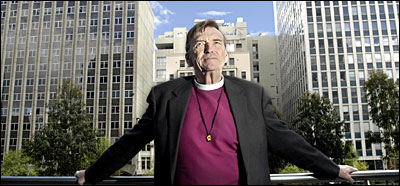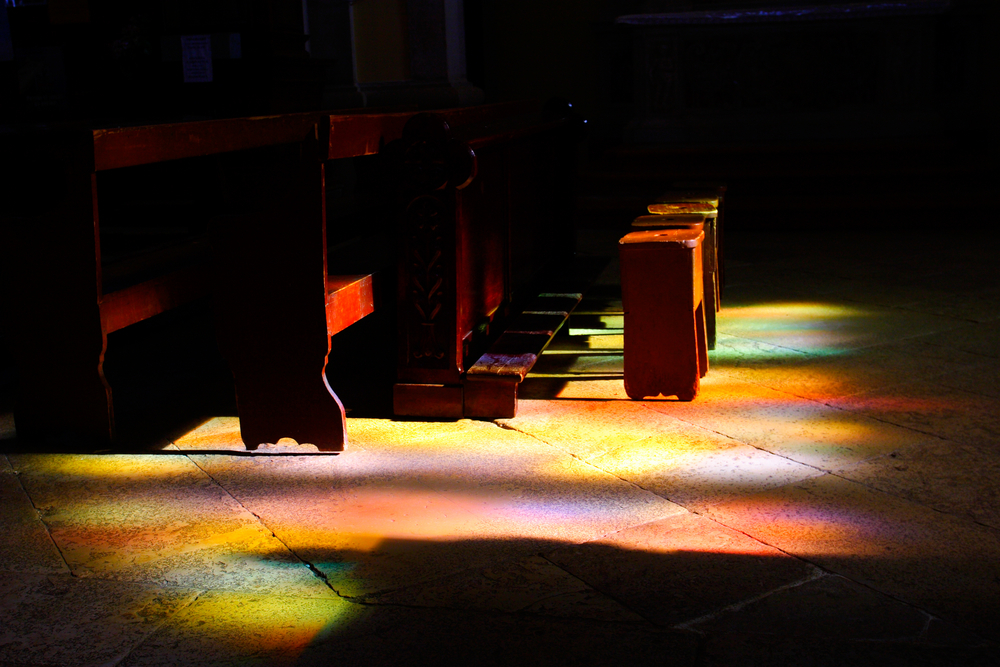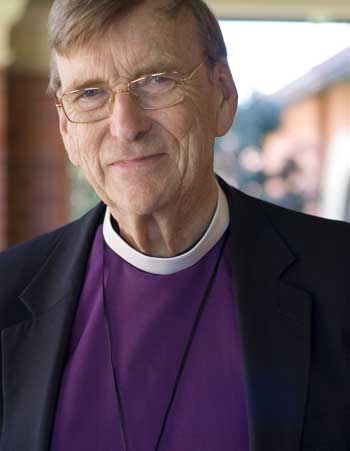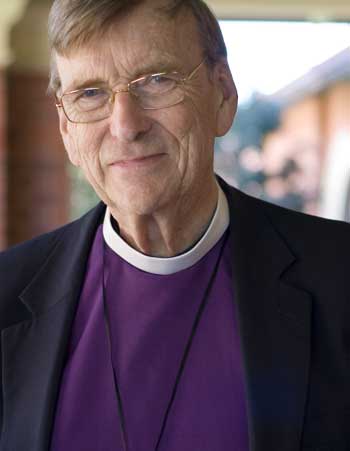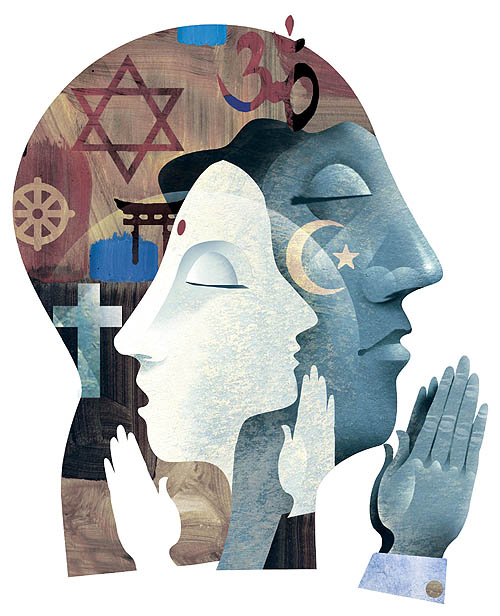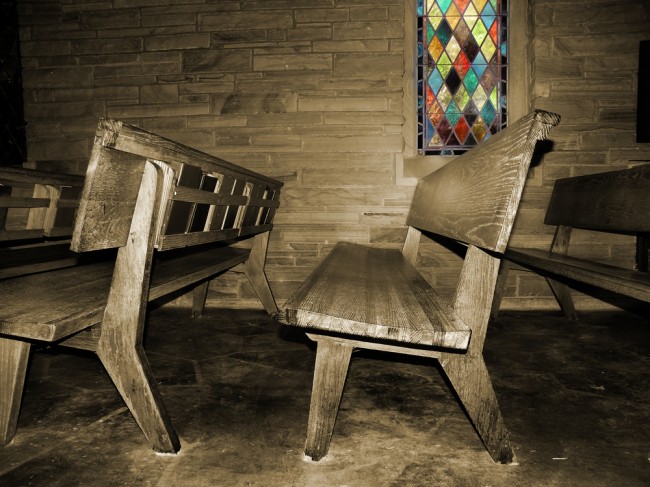Created by Rev. Caleb J. Lines
It is extremely unfortunate that the coronavirus is negatively impacting so many (especially those who are elderly or living in poverty) and disrupting our day-to-day lives, however, one valuable insight that may result from this disastrous virus is congregational awareness about the necessity of technology.
Sermon at Peace of Christ Church, September 9, 2018 - "God as She: Why it Matters" - Rev. Aurelia Davila Pratt
Easter 5B – Acts 8:26-40
What follows is a sermon I preached on the 5th Sunday of Easter 2003. In the 18 years since I preached this sermon, the Evangelical Lutheran Church in Canada has come a long way. The debate about the full inclusion of LGBTQ folk in the full life of the church has been resolved and we can truly say: "All are welcome!" But rule changes don't always change practices. Sadly, there are still places in our church were not everyone is welcome. So, I offer this sermon to cybersapce as both a reminder of where we have been and how far we need to travel. Shalom.
A sermon for Epiphany 3B – Mark1:14-20
What I am suggesting is that if we be authentic to who we are; if we play to our many strengths we will continue to be the kind of congregation which is attractive to all ages. Healthy communities are attractive. Communities who know who they are and who they serve are healthy communities. Healthy communities are able to play to their strengths. We don’t need to become what we are not in order to survive. That doesn’t mean that we don’t need to challenge ourselves to be more than we are. It does mean that we need to remain open to the challenges of the world in which we live. But from time to time, we need to hold up a mirror and celebrate who we are together. Holy Cross is fearfully and wonderfully made. We have so much potential. So many strengths. Yes, there is so much more that we can be.
All Saints’ Day is a day for remembering. The word saint simply means “holy”. In the New Testament, all those who believe and were baptized were referred to as saints. It wasn’t until round about the third century that the church began using the word saint to refer to those who had been martyred for the faith. Over time these martyred saints were held up for veneration and people used to pray to them to intercede on their behalf. I’m not going to go into all of the institutional abuses that led Martin Luther and the later reformers to abolish the veneration of the saints. Except to say, that while the Reformation put an end to the veneration of the saints in the protestant churches, it did not abolish the concept of sainthood.
The Cathedral of Hope, a congregation of the United Church of Christ, is based in Dallas, Texas, and is the world's largest liberal Christian church with a primary outreach to lesbian, gay, bisexual and transgender people. Local and national church ministries, outreach programs, pastoral counseling, television media and the internet touch thousands of lives each day.
Speaking at Community Christian Church of Springfield, MO, Bishop Spong gave us a taste of sections of his next book which will be on the Gospel of Matthew. In this lecture he is speaking to the need for the modern church to abandon its outdated commitment to belief in substitutionary death/atonement theology.
“My passion is guiding faith communities to more fully live out the mission of being witnesses to Christ’s peace with justice,” said Rev. Murphy in accepting the appointment to lead PCU. “I see the future of Christianity as modeling a spiritual social movement and see PCU’s role as supporting congregations that seek to be part of that modeling.”
Traditional churches have resisted the substantive change necessary to remain relevant in the modern world. There is a huge chasm between the higher biblical criticism and liberation theology of most seminaries and what is actually proclaimed from the pulpits of American churches. This is true, in large part because ministers are afraid of losing their jobs and parishioners want to hold onto the magical thinking that has helped them to cope with the vicissitudes of life.
We all belong. We are each one a part of the Temple of God. Paul wants the church at Corinth to recognize that they all belong to one another, and that it is foolish to divide and polarize around certain leaders. Paul argues that there is no place in the church for petty jealousies and pride.
I’d like to invite you into a conversation we’ve been having at the First Presbyterian Church of San Rafael these last weeks of Lent, a conversation about evolution and faith. We’re not talking about a six day creation, with God resting on the seventh. I really, really hope that argument’s over and done with. No, we’re talking about evolution as the way in which everything unfolds in all of creation. We are looking at a creation that evolves and opens towards unity, or shalom, in the presence of God.
We are believers in Jesus Christ who accept all people without judgment and who desire to work and worship as a community striving for social justice.
This is Bishop Spong's first lecture in the "Future of the Progressive Church" conference held on August 3, 2013 at the Community Christian Church in Springfield, MO
This video is the second of Bishop John Shelby Spong's lectures at the "Future of the Progressive Church" conference held on August 3, 2013 at the Community Christian Church in Springfield, MO.
All religions are the product of a culture's attempt at expressing their most closely held beliefs, values and the morals they want to pass on to the coming generation. We should no more say that one religion is better than another than we would claim that one language is superior to another or that my favorite music is "right" any everyone else's favorite music is "wrong." There are healthy and unhealthy religious beliefs and practices but in the 21st century we need to learn from one another and challenge one another to repent of our prejudices, oppressive practices and out dated values so that we can all become the best Jews, Christians, Muslims, Buddhists, Hindus, etc. that we can be.
The dogged refusal of traditional religions to give up Bronze Age magical thinking and doctrines will continue to make religion increasingly irrelevant in the 21st century. If the church has a future it will be because we are willing to undergo a radical transformation, being more passionate about what is true than what we have read in ancient documents. We need to be connected to one another in order to be effective in changing the world and we need meaningful connection to others to correct our own excesses. We can become better people through working together for justice, peace and mercy.
I simply do not believe that at this point in time the distinctiveness of our different churches is more important than the values and common understandings of Scripture that unite us.
Faith is not about getting our doctrines right. Nobody gets the doctrines right. It’s about doing the right things.
By: Gary Wiburn. Last week I spoke of our defining identity here at First Presbyterian as being four things: a Christ-Centered faith, a place of Creative Celebration, of Compassionate Caring, and Inclusive Community. These are some of the primary ways in which we understand ourselves as a Center for Progressive Christianity, which means nothing less than trying to embrace the essential teachings of Jesus.


